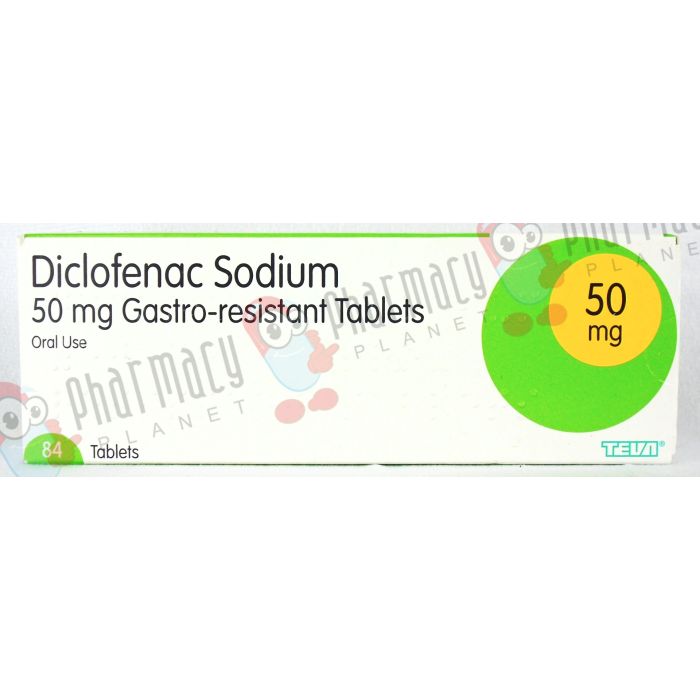Diclofenac sodium is an anti-inflammatory that has analgesic and antipyretic activities and is indicated orally and intramuscularly for the treatment of acute attacks of gout.
the items you wish
to order

by our qualified
prescriber
to your door step
Please use the options provided to make your final selection.

| Brand | Medicine Strength | Size | Price |
|---|---|---|---|
| Diclofenac Sodium for Gout | 25mg | 168 Tablets | 37.00 |
| Diclofenac Sodium for Gout | 25mg | 252 Tablets | 64.00 |
| Diclofenac Sodium for Gout | 25mg | 84 Tablets | 17.00 |
| Diclofenac Sodium for Gout | 50mg | 168 Tablets | 42.00 |
| Diclofenac Sodium for Gout | 50mg | 252 Tablets | 70.00 |
| Diclofenac Sodium for Gout | 50mg | 84 Tablets | 24.00 |
It looks like you missed filling in questions from the last consultation.Click Here to submit your response.


It is the prescribers duty to ensure that the medicine is being used safely and appropriately. please answer a few questions about yourself to help us process your request.
Customer Service Team
Confidentiality & Authenticity Assured
- Fully Regulated UK Pharmacy
- Authentic UK sourced medicines only.
- Trading for more than 10 years.
- Information Governance lead ensures all data is confidential
Need Help With Your Questionnaire?
Our customer service team is on hand Monday-Friday to help you with your queries.
Please call us on 08009788956 or
email us at: headoffice@pharmacyplanet.com
Nearly ThereA few more questions to ensure the treatment you are requesting is right for you. |
|
|
|
|
|
|
|
|
|
|
|
|
|
|
|
|
|
|
|
|
|
|
|
|
|
|
|
|
|
|
|
|
|
|
|
|
|
|
|
|
|
|
|
|
Diclofenac sodium is an anti-inflammatory that has analgesic and antipyretic activities and is indicated orally and intramuscularly for the treatment of acute attacks of gout.
People also ask
What Is Diclofenac?
Diclofenac is a non-steroidal anti-inflammatory drug (NSAID). This medicine works by reducing substances in the body that cause pain and inflammation. Diclofenac is used to treat mild to moderate pain or the signs and symptoms of osteoarthritis or rheumatoid arthritis but is especially useful when used to treat the symptoms of gout.
How does it work?
Diclofenac is a Non-steroidal compound with marked anti-inflammatory, analgesic, and antipyretic properties. The Inhibition of prostaglandin biosynthesis, which has been experimentally demonstrated, is considered that has an important relationship with its mechanism of action. Prostaglandins play a role essential in the appearance of inflammation, pain, and fever. Diclofenac sodium does not suppress proteoglycan biosynthesis in cartilage in vitro, at concentrations equivalent to those achieved in humans.
What are the benefits of taking it?
Diclofenac can be used to treat the inflammatory symptoms caused by an acute attach of gout. Diclofenac does not treat the cause of gout but helps to relieve the often-painful symptoms associated with the condition.
How do I use it and its dosage?
Always use this anti-inflammatory medication exactly as your doctor or pharmacist has told you. If in doubt, consult your doctor or pharmacist again. Your prescriber will have determined what dose of this medicine is appropriate for your individual clinical circumstances.
Side effects & precautions
Like all medicines, this medicine can cause side effects, although not everybody gets them. Some side effects can be serious. Stop using this medicine and contact your doctor immediately if you notice:
Mild abdominal cramps and abdominal pain on palpation that begins shortly after starting treatment with diclofenac 50 mg followed by rectal bleeding or bloody diarrhoea normally observed within 24 hours of the onset of abdominal pain (often unknown, cannot be determined from the available data).
Other side effects that have been reported with the use of diclofenac are as follows:
Common side effects (may affect up to 1 in 10 people):
Nervous system disorders: headache, dizziness, ear and labyrinth disorders, vertigo
Gastrointestinal disorders: sickness, vomiting, diarrhoea, acidity, abdominal pain, gases, lack of appetite
Hepatobiliary disorders: disturbances in the results of blood tests on the functioning of the liver (increase in serum transaminases)
Skin and subcutaneous tissue disorders: Rash on the skin
Uncommon side effects (may affect up to 1 in 100 people):
Cardiac disorders (at high doses during prolonged treatment): palpitations, sudden severe chest pain (symptoms of myocardial infarction or heart attack), shortness of breath, difficulty lying down, swelling of the feet and legs (signs of heart failure) If these symptoms appear, immediately consult your doctor
Rare side effects (may affect up to 1 in 1,000 people):
Immune system disorders: swelling of the face, eyes, or tongue, difficulty swallowing, gasping, hives, and general itching, skin rash, fever, abdominal cramps, chest discomfort or tightness, shortness of breath, dizziness, unconsciousness (severe allergic reaction) If these symptoms appear, immediately consult your doctor.
Nervous system disorders: drowsiness
Cardiac system disorders: chest pain, which can be a sign of a potentially serious allergic reaction called Kounis syndrome
Respiratory, thoracic and mediastinal disorders: asthma
Gastrointestinal disorders: stomach ache, reflux, bloody diarrhoea, gastric or intestinal ulcer with or without bleeding or perforation (vomiting blood and appearing blood in stool).
Hepatobiliary disorders: impaired liver function, hepatitis with or without yellowing
Skin and subcutaneous tissue disorders: hives
General disorders and administration site conditions: fluid retention with swelling (oedema)
Very rare side effects (may affect up to 1 in 10,000 people):
Blood and lymphatic system disorders: signs of lack of blood cells leading to tiredness, headache, shortness of breath when exercising, dizziness, paleness (anaemia), frequent infections with fever, chills, sore throat or mouth ulcers (leukopenia), bleeding or more bruising than normal (thrombocytopenia)
Immune system disorders: swelling on the face
Psychiatric disorders: disorientation, depression, insomnia, nightmares, irritability, psychotic reactions
Nervous system disorders: Tingling sensation, memory disorders, seizures, anxiety, tremor, meningitis (inflammation of the membranes that surround the brain) with symptoms such as fever, nausea, vomiting, headache, stiff neck, or extreme sensitivity to bright light.
Buying Diclofenac online
You can buy Diclofenac for gout online through one of the UK’s leading online pharmacies, Pharmacy Planet. It's easy and convenient. You will need to fill out a short assessment and the item will be delivered directly to your door. If you want to buy Diclofenac for gout online, use Pharmacy Planet, a UK pharmacy you can trust.










